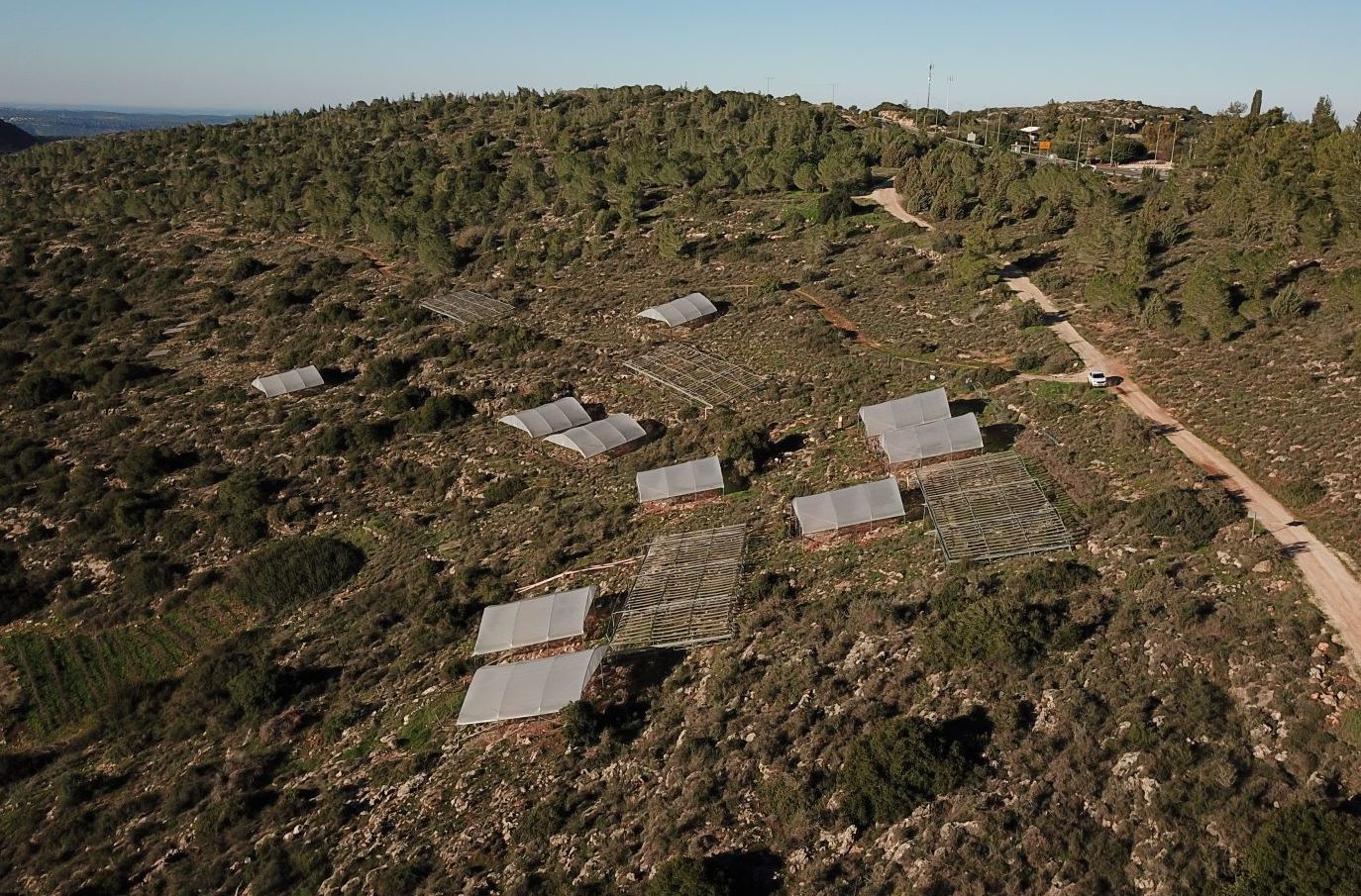
Researchers use rainout shelters at the Matta International LTER site in Israel to simulate extended droughts and observe changes in ecosystem productivity and species composition. The Matta site is part of a distributed network of over 100 sites across the globe inspired by long term experiments of the U.S. LTER Network. Similar structures without plastic panels serve as controls.
Credit: Image courtesy of International Drought Experiment
Drought impacts on terrestrial ecosystems have increased globally over the last century with models forecasting that droughts will become more frequent, extreme, and spatially extensive. The goals for this project are to synthesize results from a unique global network of drought manipulations, focusing on how ecosystem productivity responds to drought over time and key mechanisms (changes in plant composition) underlying these impacts. We propose to host a series of working groups to synthesize an existing multi-year dataset from the International Drought Experiment (IDE). The IDE is a coordinated, global network of extreme drought experiments at >100 sites, including eight LTER and four ILTER sites. The objectives for these synthesis meetings include: 1) analyzing how short-term drought affects ecosystem sensitivity patterns (i.e. the relationship between plant production and precipitation), 2) identifying how aboveground productivity and plant species composition (abundance, richness, evenness, re-ordering) change in response to a 4-year drought, and 3) determine how shifts in plant species composition indirectly affects the sensitivity of productivity to drought over time. September 15, 2021 Webinar










